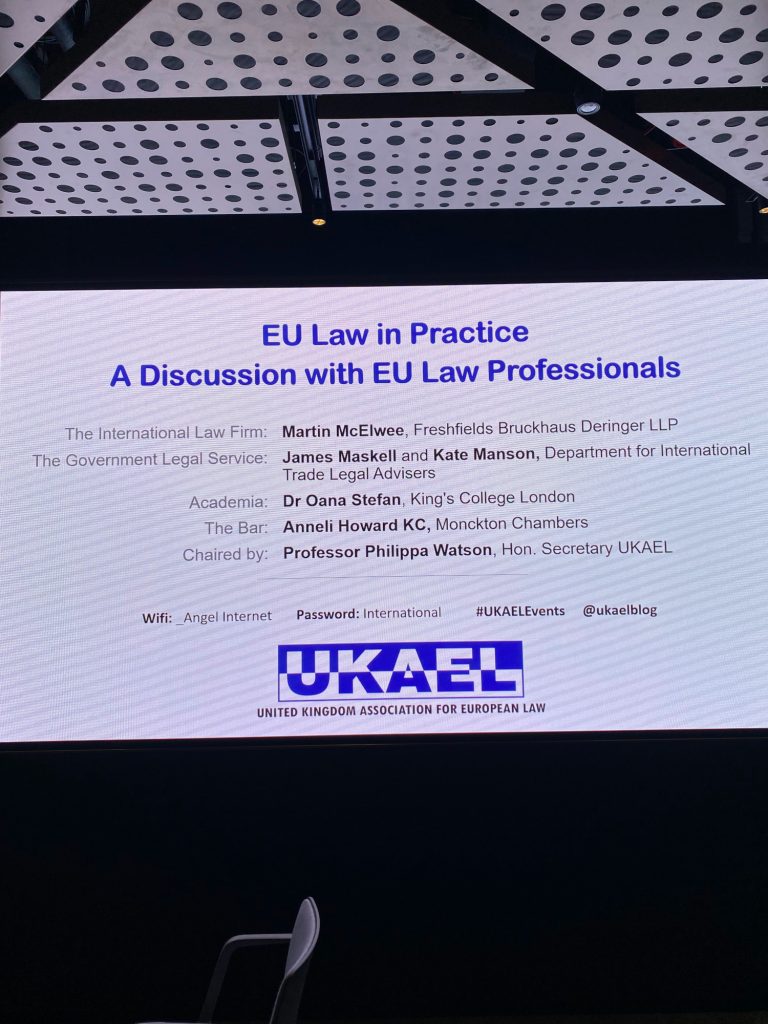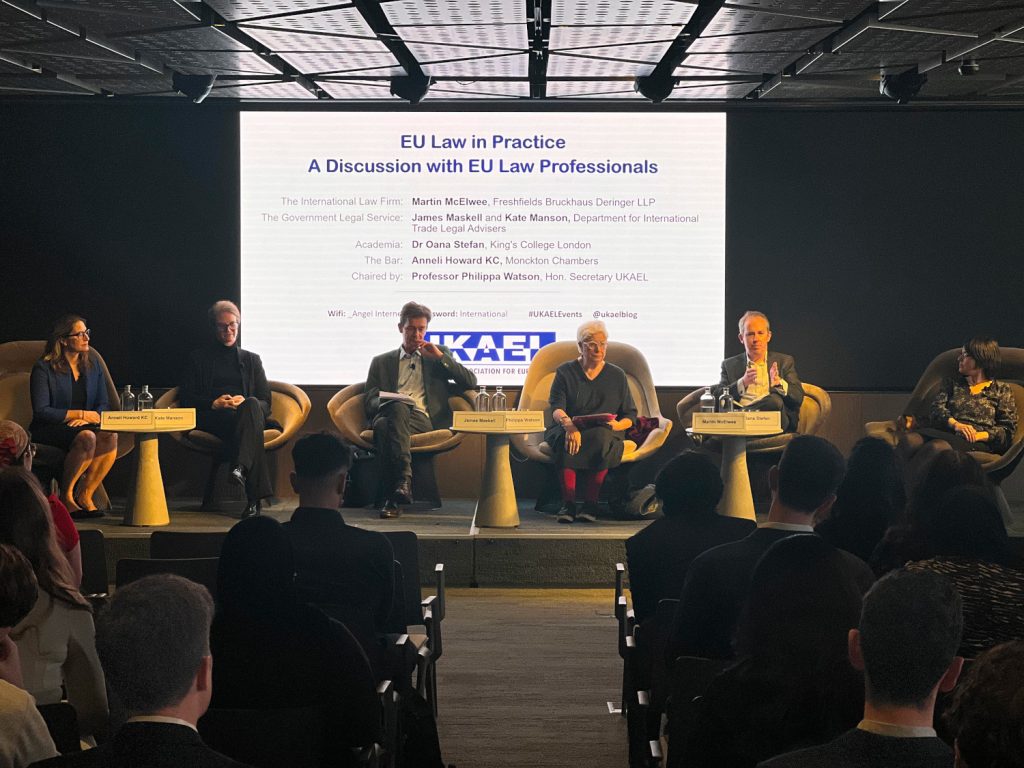The study of EU Law can seem out of place within an English Law degree post Brexit. Practising EU Law and addressing its relevance now that the UK has left the Union was the subject of a talk held by the United Kingdom Association for European Law (UKAEL) on the 21st of November. The evening was hosted by Freshfields Bruckhaus Deringer LLP and consisted of talks by five speakers. The event was chaired by Professor Philippa Watson, member of Essex Court Chambers, Hon. Secretary of UKAEL and Chair holder in Law at City Law School.

The first speaker of the evening was Martin McElwee, a partner at Freshfields UK antitrust, competition and trade practice. Although commercial work in recent years has become more national, working in an international law firm, Martin argues that studying EU Law in the UK is still relevant for the commercial sector, as regulations finalised in Europe affect London clients. “It’s not just about law … but applying that law in the context of policy, economics and business reality”, Martin clarifies.
The following two speakers were James Maskell and Kate Manson, both lawyers for the Department of International Trade (DIT). James has been involved in all aspects of trade law, such as negotiating for the Equality Act, where UK Law held a considerable influence. He explained further how as a government lawyer you need to know EU law not only because of the negotiations taking place between the EU and UK, currently most notably regarding the Northern Ireland Protocol, but also because of their evolving relationship.
Kate is a negotiations lawyer for the DIT, whose work includes drafting trade agreements and developing trade policy for the UK. She argued that from a British perspective it is not irrelevant what the EU does in practice, because of the importance of building good relations with other countries. Now that the UK no longer forms part of the Union, it needs to be aware of EU and international law alongside domestic. One of her many memorable quotes proclaims that “EU law is not going away, but how the UK deals with it, that is novel”.
The next speaker was Dr Oana Stefan, an academic and lecturer at King’s College. The first point she made, on the value of studying EU Law, is the opportunity this provides of getting jobs in EU friendly countries. In fact, she initially did not enjoy studying and practicing law, but later found a particular interest in EU Law because it combines law with politics and policy. As a law academic you can expect to do research, write notes on cases, comment on certain issues, teach, and run the business of education.

The last speaker was Anneli Howard KC, a barrister at Monckton Chambers and an active member of Gray’s Inn. She went down an unconventional pathway, training and qualifying in various countries, including Hong Kong, Italy, and Luxembourg. At the bar she now specialises in competition, EU, consumer, and public administrative law, stating:
“I fell in love with EU law because it is so creative”.
Considering the international nature of competition and commercial law, it is important to know what is going on in other countries, as “UK litigations are just one piece of the jigsaw”. EU law is embedded within British statute books, and in order to discuss how the law should be interpreted post-Brexit, it is important to know what legislation was like before.

At the end of this extremely informative event one not only understood how EU Law remains relevant within a number of professional sectors in the UK, but also the various pathways a law degree can lead you down.
Lili Ashley is studying for a GDL at City Law School and is a member of this year’s Lawbore journalist team. Prior to City, she completed her Undergraduate Degree in Modern Languages at Bristol.

